How to Recover Deleted Files which bypasses the Windows Recycle Bin?
Windows facilitates an option to save accidental deletion by providing the feature called the Recycle Bin. The Windows recycle bin is a temporary location for holding the files or folders deleted from any logical drive/partition (C drive, D drive, E drive, etc.). The recycle bin size is approximately 10% of the total partition size. So, when we delete large-sized files or a group of files/folders that collectively exceed the size of the recycle bin, it will bypass Windows recycle bin folder and are immediately deleted. Thus, accidental deletion of files or folders that are too large for the recycle bin may include important data and if it exceeds the recycle bin size.
At instances of bypassed recycle bin folder, you will not find any options available on your Windows PC that can restore the bypassed files. Nonetheless, an updated file backup can prove useful in the situations of permanent file loss from the computer. But, unfortunately, users fail to possess the backup of files on certain occasions. If that is the case, then the best option is to rely on the Recover Recycle Bin software.
Get back bypassed files and folders via Recover Recycle Bin tool
The Recover Recycle Bin an efficient tool to perform restoration of files that are bypassed or emptied from the recycle bin folder. This award-winning software is integrated with powerful algorithms that deep scans the WIndows HD to fetch all permanently deleted files. It makes use of the unique file signatures to locate the deleted files from the system drive. Upon completion of the scan process, it lists all the undeleted files for a preview; sorted based on their filename, size, creation date, and modified date. Recover Recycle Bin software can successfully recover deleted files from Recycle Bin on Windows 10, 8, 7, XP, Vista, and Server editions. bypass Windows 10 Recycle Bin.
Significant features of the bypassed recycle bin recovery app
- Extracts files without affecting their original file structure or the content
- It can also be utilized to retrieve files from USB drives, external HDD, SSD, iPods, memory cards, and so on
- Offers safety and convenience in the recovery process
- Helps to retrieve Excel files emptied from Recycle Bin and other MS Office documents
- The tool is also available in a free demo version
- Lets users to save the recovery session whilst running the trial edition of the software
Points to remember-
- Download the Recycle Bin Recovery tool to any partition/drive that is safe and from where the data is to be regained. This ensures that you are not overwriting the deleted files
- Log in to your Windows as Local System Administrator, disable the UAC account (Do not notify) to install the program
- Check system requirements to ensure that you are meeting the hardware requirements to run the software
Steps to recover deleted files that are bypassed Windows recycle bin folder
Step 1: Run the Recover Recycle Bin software on your Windows system.
Step 2: Choose the Recover Files option from the main screen.
Step 3: Browse the appropriate logical drive partition for scanning. Hit on the Scan button to continue.
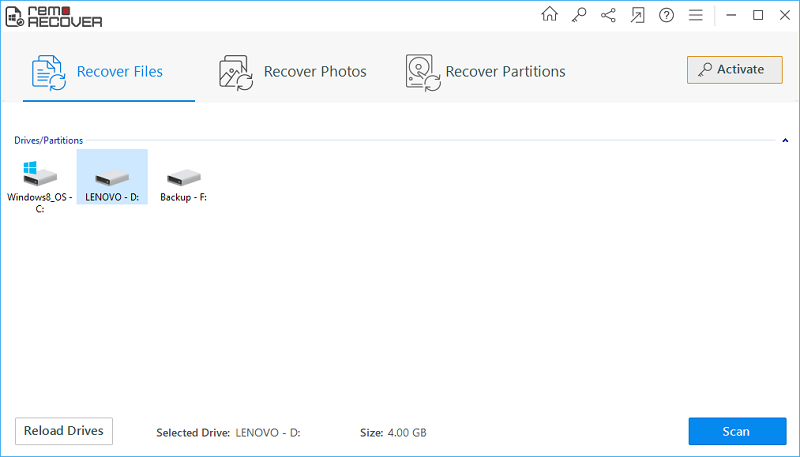
Fig A: Main Window
Step 4: Wait for the scanning process to complete.
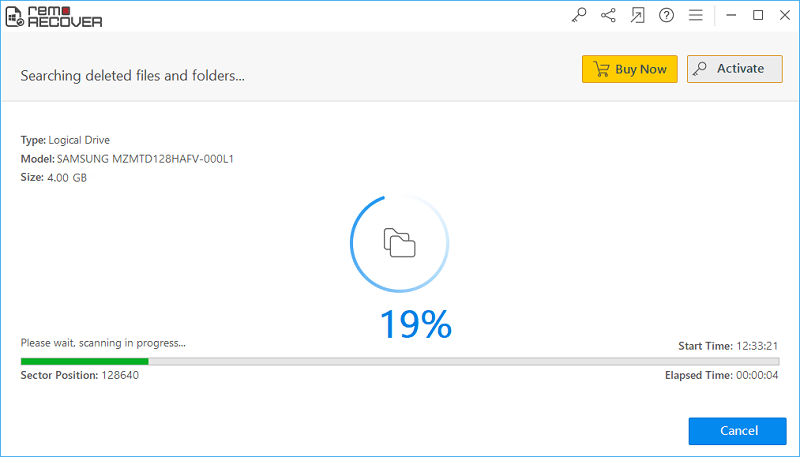
Fig B: Scanning in Progress
Step 5: Check the undeleted files under Data View or File Type View panes.
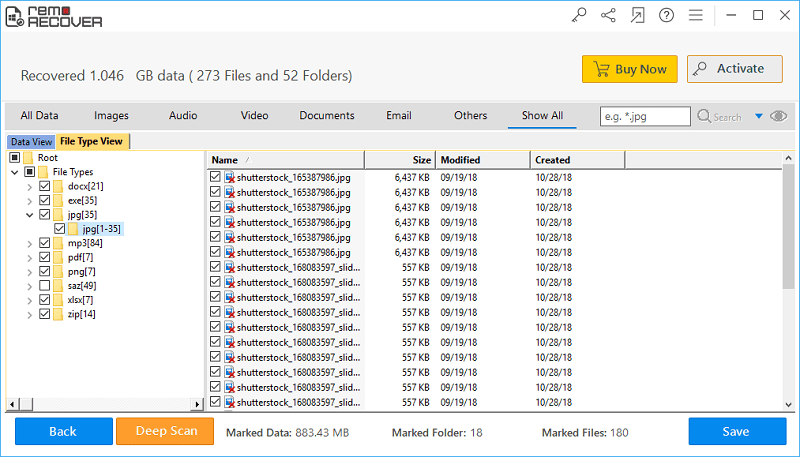
Fig C: List of Restored Files
Step 6: Simply right-click on any files item that you wish to preview. Proceed to mark the required files for saving.
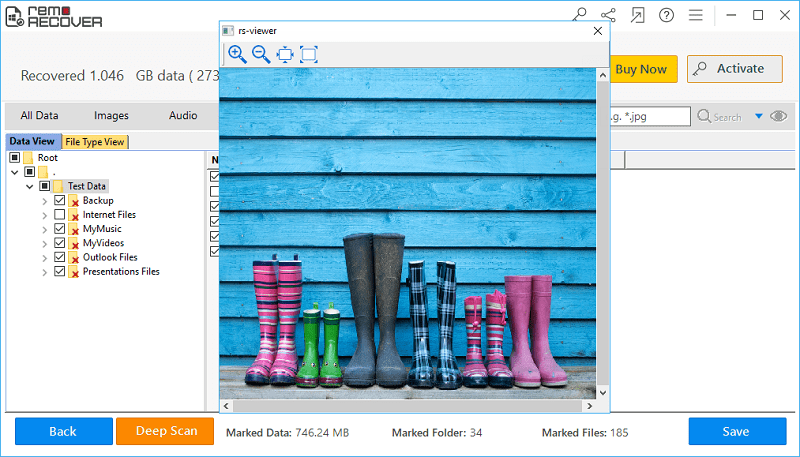
Fig D: Preview Recovered Files
Step 7: Finally mention the suitable drive location to save the files regained and click on the Save button.
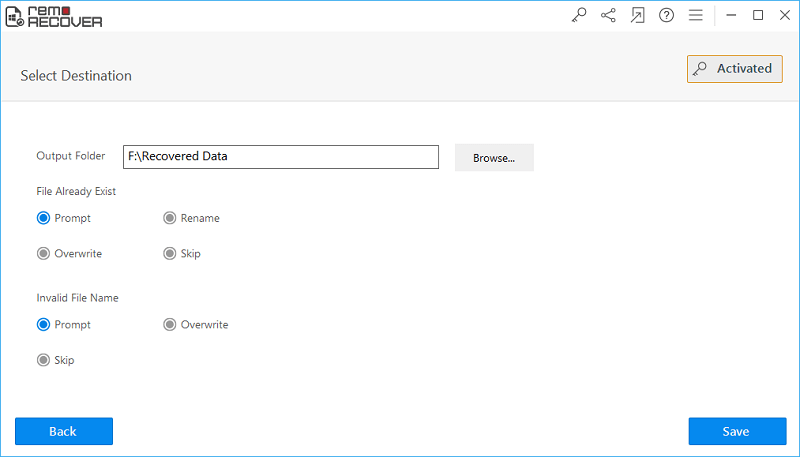
Fig E: Save the Recovered Data